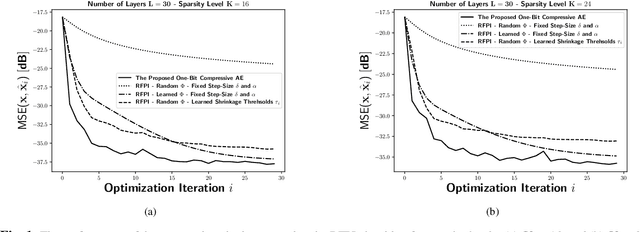Deep One-bit Compressive Autoencoding
Paper and Code
Dec 10, 2019
Parameterized mathematical models play a central role in understanding and design of complex information systems. However, they often cannot take into account the intricate interactions innate to such systems. On the contrary, purely data-driven approaches do not need explicit mathematical models for data generation and have a wider applicability at the cost of interpretability. In this paper, we consider the design of a one-bit compressive autoencoder, and propose a novel hybrid model-based and data-driven methodology that allows us to not only design the sensing matrix for one-bit data acquisition, but also allows for learning the latent-parameters of an iterative optimization algorithm specifically designed for the problem of one-bit sparse signal recovery. Our results demonstrate a significant improvement compared to state-of-the-art model-based algorithms.
 Add to Chrome
Add to Chrome Add to Firefox
Add to Firefox Add to Edge
Add to Edge